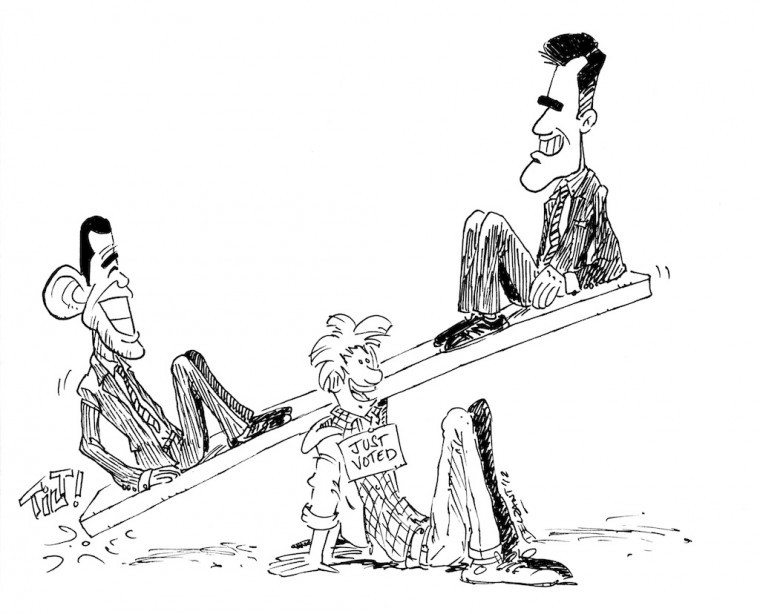A frequently asked political question today, and perhaps since the inception of our electoral system, has been concerning the value of the vote. Particularly in our state– where the number of registered democrats out number republicans by a sizable margin– many have come to believe that their vote is inconsequential.
On hearing such murmurs from college students, I am often astounded. It is my belief that it is this generation which should be most invested in the political process. With the level of uncertainty shrouding our future, isn’t it in our best interests to actively participate in the decisions that will preside over our future? Yes it is.
Politically literate people who actively participate in the electoral process are the hallmark of a healthy representative democracy. With almost half the voting age population abstaining from voting, the level of accountability on the part of an elected official is severely diluted.
Consider this; on average, the number of votes by which the President of the United States is elected through is about a fourth of the eligible voters. A candidate can be elected by pandering to a fraction of the population, and by doing so undermine the needs of the majority of Americans.
Furthermore, the likelihood of electing unsuitable individuals, whom do not have our best interests at heart, increases dramatically when such a minute portion of the population is actively participating in the electoral process.
Nevertheless, protesting without offering alternatives is merely noise. The electoral process is one of the main tools provided for by the Constitution to effect the change we seek. If an individual decides not to participate in the electoral process, any objection to the manner in which they are governed while not without merit, is easily refutable. Your non- participation in choosing who governs you is akin to accepting the actions of the subsequently elected candidate- regardless of how negatively it affects you. Simply put, if you don’t vote, don’t complain.
With those preliminary considerations out of the way, we can now consider the importance of electing the candidate that best represents our core values. Note this: every decision that is decided upon by our elected officials has its consequences. It is in our best interest as a society to ensure that those decisions work towards improving the quality of life, not only for ourselves, but also for each and every member of our community.
When issues like the economy, Medicare, and a host of other pivotal policies are being debated, it is important that we make our voices heard. It’s important we select the candidates who best represent our core values.
Still, let us also not ignore the sacrifices that were made by the brave men and women who came before us and made it possible for us to even have the choice to vote or not to vote. As we bear witness to the some of fruits of the Nineteenth Amendment and the Civil Rights Voting Act, let us consider the possibilities that are obtainable in an active, politically literate society.

